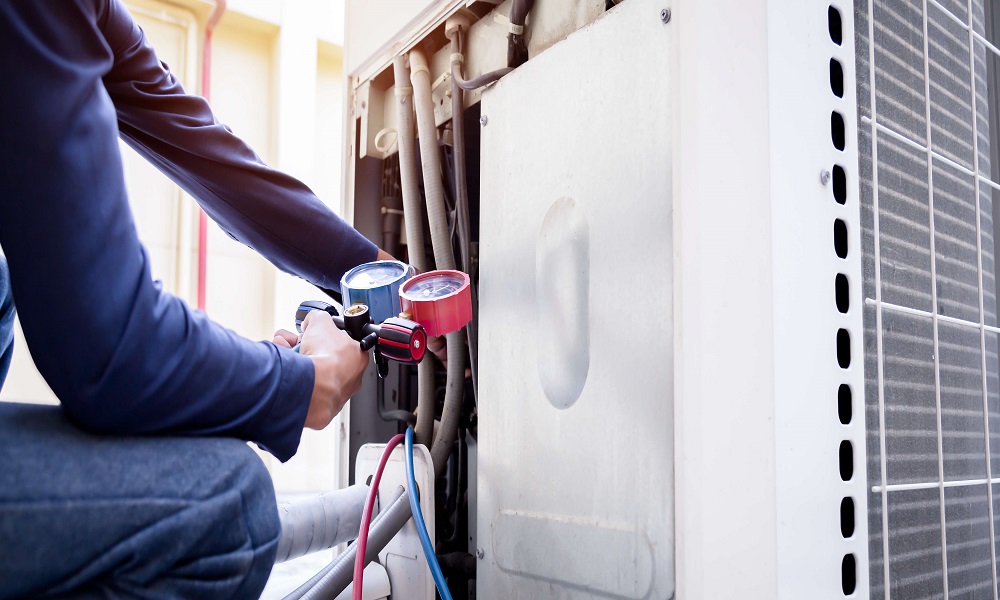Just How to Choose the Right Cooling And Heating System for Your Demands
Selecting the ideal heating and cooling system is an essential choice that calls for mindful consideration of various aspects. Begin by evaluating your home's dimension, format, and distinct demands, as these elements determine the necessary capability and arrangement of the system. Additionally, establishing a spending plan that encompasses installation and lasting functional costs is necessary. As you weigh your choices, understanding power performance scores and the ramifications of your neighborhood climate will certainly play a significant role in your choice. Nevertheless, the myriad of system types offered can complicate this procedure, leading one to ask yourself which course ultimately leads to optimum convenience and performance.
Analyze Your Home Dimension
Analyzing your home size is an important very first step in choosing the proper HVAC system. The dimension of your home straight affects the heating & cooling capacity required for reliable climate control. An a/c system that is as well tiny will battle to keep comfortable temperature levels, causing raised energy consumption and endure the device. Alternatively, an extra-large system can lead to brief cycling, insufficient humidity control, and inefficient procedure.
To properly analyze your home dimension, gauge the square video footage of each space, taking into consideration variables such as ceiling height and the design. In addition, think about the insulation high quality and the variety of windows, as these aspects affect thermal efficiency. Homes with open layout may require different system arrangements contrasted to those with lots of separated rooms.
Utilizing the Guidebook J load calculation technique can offer an extra specific estimate of your cooling and heating needs. This technique accounts for different variables, consisting of local environment, solar gain, and occupancy patterns. By very carefully reviewing these facets, you can make sure that your chosen a/c system is suitably sized, bring about boosted convenience, power effectiveness, and long life of the equipment.
Determine Your Budget Plan
Establishing your budget is a critical action in the heating and cooling system choice process, as it sets the specifications for your alternatives - DMAKS HVAC. A cooling and heating system is a substantial financial investment, and recognizing your monetary restrictions will aid tighten down choices that fit within your ways
Begin by assessing not only the first purchase price yet additionally setup expenses, which can vary substantially depending upon the intricacy of the project. In addition, consider recurring expenses such as maintenance, repair services, and energy consumption. A system might appear budget-friendly originally however can bring about greater costs over time if it is much less efficient.
It is suggested to designate a contingency fund for unforeseen expenses that might occur during installment or initial system modifications (DMAKS HVAC). Additionally, check out financing options or discounts that More Bonuses might be offered, as these can reduce the concern of ahead of time prices
Inevitably, having a clear budget plan permits you to involve with cooling and heating professionals extra properly, guaranteeing you obtain tailored recommendations that lines up with your financial goals and home requirements. By being diligent concerning your spending plan, you can make enlightened choices that boost convenience without jeopardizing financial stability.
Evaluate Power Effectiveness
Power performance plays a crucial function in the overall efficiency and cost-effectiveness of your A/c system. Look for systems with a high Seasonal Power Effectiveness Ratio (SEER) for cooling and a high Annual Fuel Usage Performance (AFUE) score for heating.
Furthermore, take into consideration the Power Star certification, which represents that the system satisfies rigorous effectiveness standards set by the Epa. Spending in a Power Star-rated a/c system can result in considerable savings gradually, especially in locations with extreme temperature level fluctuations.
One more aspect to review is the system's size and ability. An oversized or small unit can cause inefficiency and increased energy prices. DMAKS HVAC. Proper sizing, typically identified via a Hands-on J tons estimation, guarantees that the system operates at helpful resources ideal efficiency


Think About Environment and Environment
When picking a HVAC system, it is essential to consider the regional climate and ecological conditions, as these factors considerably influence the system's efficiency and effectiveness. Various regions experience varying temperature extremes, humidity degrees, and seasonal modifications, every one of which impact heating and cooling needs.

Furthermore, neighborhood ecological aspects, such as air high quality and possible allergens, should inform your option. Equipments equipped with advanced filtering modern technologies can assist alleviate contaminants and offer cleaner air. Furthermore, consider the power resources readily available in your area-- some HVAC systems are more effective when powered by gas or renewable power sources.
Eventually, aligning your heating and cooling system choice with your neighborhood environment and ecological factors to consider will certainly cause enhanced convenience, enhanced efficiency, and lower energy expenses.
Explore System Types and Features
As home owners look for to optimize convenience and efficiency, checking out the various sorts of heating and cooling systems and their special attributes becomes crucial. The main kinds of cooling and heating systems consist of central air, heatpump, ductless mini-split systems, and heating systems. Each system provides unique benefits customized to different requirements and preferences.
Central air conditioning systems supply uniform cooling throughout a home, making them suitable for larger areas. Heat pumps work as both heating and cooling remedies, making use of electrical power to move heat, which can result in reduced power prices. Ductless mini-split systems are becoming significantly preferred because of their adaptability and simplicity of installment, allowing home owners to manage the temperature in individual areas without considerable ductwork.

Final Thought
In final thought, selecting the ideal a/c system requires careful consideration of numerous aspects, consisting of home dimension, spending plan restraints, energy efficiency, neighborhood climate, and offered system types. A detailed evaluation of these aspects makes certain ideal comfort and cost-effectiveness. By adhering to a structured approach, home owners can make enlightened choices that align with their certain needs and choices, ultimately causing boosted indoor air top quality and energy financial savings.